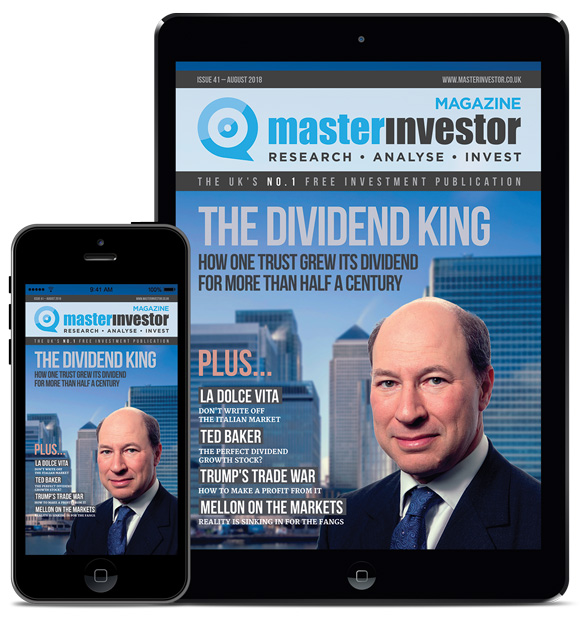What do the best and worst performing funds tell us about the market?


Never miss an issue of Master Investor Magazine – sign-up now for free! |
There are times when it can be useful to look back at the best and worst performing funds to get a feel for the main trends that are influencing the markets. One of the easiest ways to do this is to order the funds on FE Trustnet using the latest 12-month returns.
According to the data, the top performers over the last year with gains in excess of 30% are mostly US Equity or Technology funds. The former includes the likes of Baillie Gifford American, JPM US Smaller Companies, and Morgan Stanley US Growth, while the latter comprises Neptune Global Technology, Smith & Williamson Artificial Intelligence, Polar Capital Global Technology and AXA Framlington Global Technology.
The dominance of the US economy and stock market
These strong returns mark a continuation of the dominance of the US economy and stock market with the giant tech companies such as Amazon, Microsoft and Apple leading the way. There is obviously a lot of hot money chasing these stocks, which makes them susceptible to sharp pullbacks – as we have seen recently with Facebook. But while many are sceptical about their elevated valuations, others believe they are justified by the high growth rates.
The other end of the league table is just as interesting, with the worst of the laggards down by more than 20% in the last 12 months. Most of those at the bottom are gold and precious metals funds such as Quilter Investors Precious Metals Equity, BlackRock Gold & Generaland Smith & Williamson Global Gold & Resources, with some of the Emerging Market mandates not far behind.
All of these areas have suffered from the recent surge in the value of the dollar. The dollar index, which measures the value of the greenback against a basket of six other major currencies, has recently hit its highest level since June 2017. This is largely due to the Fed’s policy of raising interest rates, which is running well ahead of all the other key central banks.
Higher interest rates in the US tend to be painful for Emerging Markets
Higher interest rates in the US tend to be painful for Emerging Markets because of their reliance on dollar denominated debt that they have to service. There have been several historical examples of the strong dollar causing a sell-off in the region, so it is possible that the problems in Turkey could be the first sign of something more serious to come.
The other main impact of the strong dollar is the detrimental effect on the price of gold, which has recently hit a two-and-a-half year low. Gold, like other commodities, is priced in dollars, so when the greenback strengthens it makes the cost of buying gold in other currencies more expensive.
To some extent these same trends are also reflected amongst the investment trusts, with the top performers over 12 months including the Allianz Technology Trust (LON:ATT) and with Golden Prospect Precious Metals (LON:GPM) among the laggards, although the picture is a lot harder to unpick on account of the more unusual mandates.
If you think that these patterns will continue, the obvious place to invest would be a Global Tech fund or US Equity fund with a growth bias, otherwise a pullback in the US dollar should benefit gold and other commodities with many of the commodity investment trusts trading on wide double digit discounts.
Comments (0)